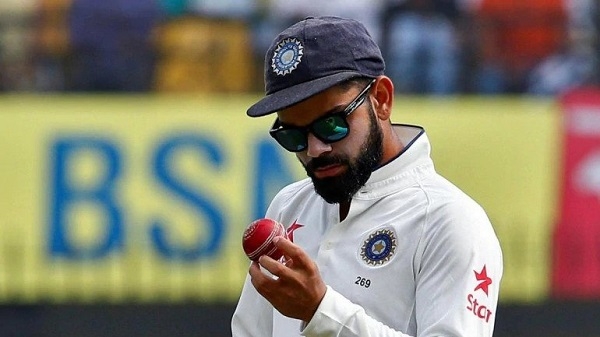ICC bans use of saliva to shine ball, nods to allow sweat; Know the reasons-
Total Views |
Dubai, May 19: Anil Kumble-led ICC Cricket Committee recommended banning the use of the saliva to shine the ball with several other changes made in International Cricket Council (ICC) regulations. However, the panel decided not to prohibit the use of sweat. The regulations were taken 'to mitigate the risks posed by the coronavirus.

In a conference call led by Kumble, specific issues were highlighted related to viruses including maintaining the condition of the match ball and the appointment of non-neutral umpires and referees to international cricket.
Ban of Saliva
According to the Chair of the ICC Medical Advisory Committee Dr. Peter Harcourt there was a high risk of the transmission of the virus through saliva, and the panel unanimously agreed to recommend that the use of saliva to polish the ball be prohibited. And also, the World Health Organization (WHO) advisory had stated, “COVID-19 virus is primarily transmitted between people through respiratory droplets and contact routes.”
No Prohibition on Sweat
The players are allowed to use sweat to shine the ball. "The Committee also noted the medical advice that it is highly unlikely that the virus can be transmitted through sweat and saw no need to prohibit the use of sweat to polish the ball whilst recommending that enhanced hygiene measures are implemented on and around the playing field," the statement from ICC read.
But to what extent the decision to allow the usage of sweat is correct amid the increase in the virus across the world? Will it mitigate the risk of coronavirus?
Meanwhile, on May 1, it was reported that Australia has restricted both the use of saliva and sweat as it could cut down the risk of the virus to spread.
Appointment of Non-Neutral Umpires and referees in international matches
Since 2002, the ICC had decided that officials appointed should not be from the same country as the participating teams. In Tests format, it has proceeded in this same way. The third umpire was also an ICC appointee, while the fourth umpire came from the host cricket board.
However, in ODIs, one on-field umpire and the third umpire were from the ICC panel and the second on-field umpire with the fourth umpire was from host cricket board. For T20 internationals, all four umpires came from the host board. In this way, the ICC appointed neutral match referees across formats.
Nonetheless, due to the lockdown and given the challenges of international travel, the ICC will be appointing the non-neutral umpires. The appointments will continue to be made via the ICC from local Elite and International Panel referees and umpires. Where there are no Elite Panel match officials in the country, the best local International Panel match officials will be appointed.
"The Committee also recommended that the use of technology is increased to support the appointments of a wider pool of umpires from around the world and has proposed an additional DRS review per team per innings is introduced in each format as an interim measure, " it further added.
Kumble said, “We are living through extraordinary times and the recommendations the Committee have made today are interim measures to enable us to safely resume cricket in a way that preserves the essence of our game whilst protecting everyone involved.”

